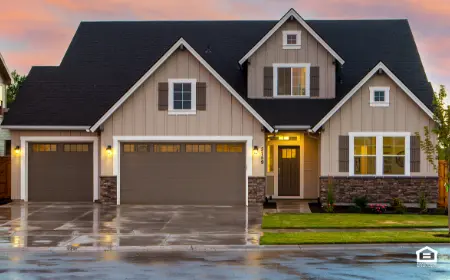Does Your Rental Property Need a Basement Waterproofing System?
A wet basement is a serious problem in any rental property. A wet, musty basement is not only a health and safety hazard, but also could also drive tenants away and have a negative impact on  your property values. A basement that leaks water or floods constantly could increase mold and mildew issues, and may even result in expensive structural damage. If you’ve noticed your rental house has damp walls or puddles on the floor, or if it seems to flood a lot, you might need to invest in a basement waterproofing system.
your property values. A basement that leaks water or floods constantly could increase mold and mildew issues, and may even result in expensive structural damage. If you’ve noticed your rental house has damp walls or puddles on the floor, or if it seems to flood a lot, you might need to invest in a basement waterproofing system.
There are a number of different waterproofing techniques for basements. Depending on the type and location of dampness in your property’s basement, you’ll need to choose one that is right for your property and budget. There are two main types of waterproofing: exterior and interior. Both approaches are designed to prevent water from accumulating in and around a dwelling’s foundation.
Exterior Waterproofing Techniques
Among the options available for exterior basement waterproofing, there are three that offer the best mix of value and function. The first technique uses a cement coating on the exterior of a property’s basement walls or crawlspace to seal out the water. Another popular technique calls for installing a waterproof membrane around the property’s foundation. This method requires excavation, so while it is very effective, it is often  somewhat expensive. The third approach to exterior waterproofing is to install a drain system designed to collect and carry groundwater away from a property’s foundation. This option may be necessary for areas with high levels of groundwater or frequent rainstorms.
somewhat expensive. The third approach to exterior waterproofing is to install a drain system designed to collect and carry groundwater away from a property’s foundation. This option may be necessary for areas with high levels of groundwater or frequent rainstorms.
Interior Waterproofing Techniques
Similar to exterior waterproofing techniques, waterproofing the interior of a rental property’s basement is all about keeping the water away from the walls. Out of the three most popular approaches, the first involves applying a foundation coating to prevent the cement from weeping. Similarly, another approach focuses on using a waterproof sealant to seal up cracks and reduce dripping and puddles. In some properties, a water vapor barrier is a third effective approach to waterproofing. This technique involves installing rubberized boards or mats to basement walls to prevent water from seeping in. These techniques vary widely in cost, so it’s important to get multiple quotes before choosing any one option.
Protect Your Investment
Deciding to waterproof your rental property’s basement is a decision that should be based on your property’s unique circumstances. However, if dampness is a constant problem, waterproofing might be the only way to protect your investment from losing value. While waterproofing your rental property’s basement will always be a significant expense, that cost will likely be well worth it over the long term. This is because a dry basement is such an asset to any rental home. Tenants will want to use the basement space for work, hobbies, or storage, things they cannot do if the walls are always damp or they are the victims of repeated floods. What is more, a musty basement will smell bad and may permeate other areas of the house, making it harder for you to attract and keep quality tenants. Over time, the loss of rental income combined with the decrease in property value may be far worse than the cost of an effective waterproofing remedy for your property. If you think you might need to waterproof your rental property’s basement, consider giving your nearest Real Property Management office a call. Our experts can help you evaluate the problem and advise a solution that is right for you.
We are pledged to the letter and spirit of U.S. policy for the achievement of equal housing opportunity throughout the Nation. See Equal Housing Opportunity Statement for more information.
Get the Neighborly App
In addition to Real Property Management's expert skills in managing your rental property, you can utilize Neighborly's other brands to maintain and enhance your home. Use the Neighborly App to get connected to local home service professionals. Download and receive offers only available on the App.
Depending on current health and safety regulations in your area, some of the services mentioned in this post may not be available. Neighborly service providers will follow the latest health and safety guidelines provided by the local and state governments. Please check with your local Neighborly service provider for details at the time you need service(s).






